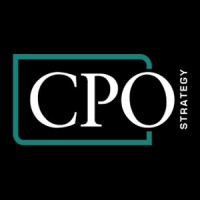When it comes to negotiation, there’s often a sense of stress and pressure—especially in business scenarios across the UK, where buyer-supplier relationships are increasingly complex and expectations high. Often, both buyers and suppliers are focused on securing their own objectives rather than exploring how game theory in procurement can enable mutually beneficial outcomes.
By applying principles of game theory, both parties can better understand each other’s strategies and move towards a collaborative, win-win result—rather than purely competing for individual gain.
Certainly sounds like a tough negotiation, doesn’t it? Two rational parties finding common ground and agreeing on something beneficial to both may feel a bit idealistic, but within UK procurement, there is a logical, data-driven approach that supports this possibility: Game Theory:
Within a very competitive environment, the Game theory is the study of conflict and cooperation. One can call it science of building a suitable strategy that reduces conflicts and makes way for synergies to work in tandem to the benefit of the parties involved in a negotiation. Mathematicians John von Neumann and John Nash, along with economist Oskar Morgenstern were the key pioneers of the Game Theory.
Although Game Theory found large applications in political science and economics, but it is also known to have made many successful negotiations within procurement.
Read more: Transforming Public Procurement: UK Procurement Act 2023 and Its 2025 Rollout
Game Theory: A Strategic Science for Procurement in the UK
In a highly competitive and cost-conscious UK market, game theory—the study of strategic decision-making under conflict and cooperation—offers a powerful lens for procurement professionals. It’s often described as the science of strategy, aimed at reducing friction while creating synergy between negotiating parties.
Pioneered by mathematicians John von Neumann and John Nash, along with economist Oskar Morgenstern, game theory was initially applied to politics and economics. However, it’s now proving transformative in UK public sector procurement, supply chain negotiations, and strategic sourcing.
Download Whitepaper: Master the UK Procurement Act 2023: Ensure Compliance & Drive Procurement Excellence
3 Practical Tips to Apply Game Theory in UK Procurement:
1. Assessment of Supplier Rational
Wondering how game theory in procurement can deliver savings without alienating suppliers? It begins by understanding the rationale behind a supplier’s decisions. In the UK market—where supplier relationships are often long-term—this insight allows buyers to reverse-engineer win-win solutions. This creates sustainable agreements and enhances supplier trust, which is critical in regulated sectors like healthcare, local government, and infrastructure.
2. Acknowledge Game Theory Limitations
Negotiation levels aren’t static. While game theory promotes joint gains, UK procurement professionals must still act prudently. No agreement should be accepted if it compromises long-term business health. In scenarios involving government tenders or strategic contracts, the outcome must align with regulatory compliance and public value, even if long-term benefits take time to manifest.
3. Supplier Risk & Uncertainty
While being mindful about the application of the Game theory, it is not enough to guarantee that places it has been applied to are immune to all elements of supplier risk and uncertainty. To ensure this aspect of immunity, game theory in procurement must conduct as much research possible, should request for as much information from the market that can help in better negotiation with all concerned stakeholders, including suppliers.
Game theory holds substantial value for both business and its function/s. If applied with the above three prerequisites in mind, Game theory as an innovative approach has real big impact on procurement which not only delivers in results but also in the re-branding of procurement function within an organization.
By now, we can see, or you will agree to the fact that how Game theory has the potential of shaping and influencing interactions in negotiations. In fact its promise on ROI is a big deal for procurement process to demonstrate its value within a wider organizational structure.
Why Game Theory Matters for UK Procurement Functions
Game theory offers immense value—not just for deal outcomes, but also for transforming how procurement is perceived. In the UK, where the procurement function is rapidly evolving from cost-centre to strategic enabler, adopting analytical frameworks like game theory elevates its role and impact.
By integrating behavioural economics and strategy, procurement can:
- Deliver measurable ROI
- Strengthen supplier partnerships
- Navigate uncertainty in a post-Brexit economy
Conclusion:
In the complex world of business negotiations, where emotions often run high, Game Theory offers a valuable framework for achieving mutually beneficial outcomes. By understanding supplier rationality, acknowledging the theory’s limitations, and addressing risk and uncertainty, UK procurement teams can leverage Game Theory to enhance their negotiation strategies, build stronger relationships with suppliers, and ultimately drive organizational success.
So what are you contemplating on? We started on the premise of evaluating the Game theory in procurement as a possible game changer. Given our discussion on how it has to be approached and exceptions to consider, do you think the Game theory is poised to make a difference? Book a demo!
Related Read:
- Blog – 6 Successful Purchasing Negotiation Tips for Every Buyer
- Blog –11 Successful Tips for Winning Supplier Negotiation
- Supplier Risk Management Software
- White Paper – A Winning Strategy to Supplier Enablement: The Pyramid Approach
- Webinar – TechWatch: Transform Supplier Risk Management with iRisk
- Optimizing P2P for Large Enterprises: 7 Best Practices
- Source to Pay Optimization in Procurement: Benefits and Best Practices
- Implementing Procurement Orchestration: Strategies for Success
- Streamline Your Procurement Processes with Integrated Source to Pay Platforms and Autonomous Quick Sourcing Technologies












































